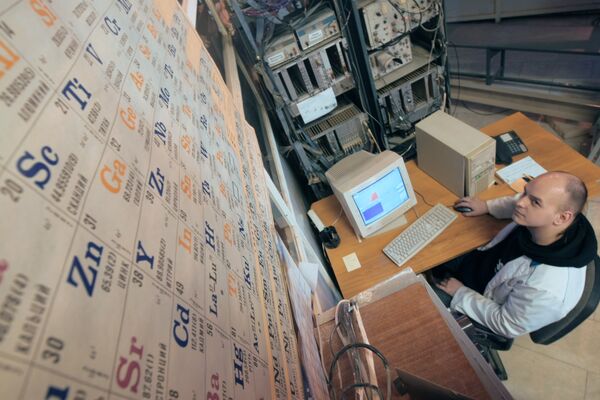WASHINGTON, August 29 (RIA Novosti) – Scientists in Europe have replicated an experiment first done in Russia 10 years ago and confirmed discovery of a new chemical element, US media and researchers reported this week.
The element, which has the atomic number 115 on the periodic table, has been given the provisional name of “ununpentium,” a term approximating the Greek and Latin words for the number 115, science news website LiveScience reported.
In a statement, Lund University in Sweden said Wednesday that an international team of researchers working in Germany “have confirmed the existence of what is considered a new element with atomic number 115.”
“The results confirm earlier measurements performed by groups in Russia,” the statement acknowledged.
LiveScience said the original experiments were conducted in the Russian town of Dubna north of Moscow a decade ago. A report on a specialist physics website in 2004 said both Russian and US scientists were involved in the original breakthrough.
Ununpentium was described as a “super-heavy” element with an atomic weight far higher than uranium, the heaviest common natural element.
“Scientists hope that by creating heavier and heavier elements, they will find a theoretical ‘island of stability,’ an undiscovered region in the periodic table where stable super-heavy elements with as yet unimagined practical uses might exist,” LiveScience said in a report published Wednesday.
Despite confirmation of its existence, ununpentium’s journey to acceptance is not complete. The element will receive a permanent name only if formally endorsed by the International Union of Pure and Applied Physics and Chemistry, the Associated Press reported.


